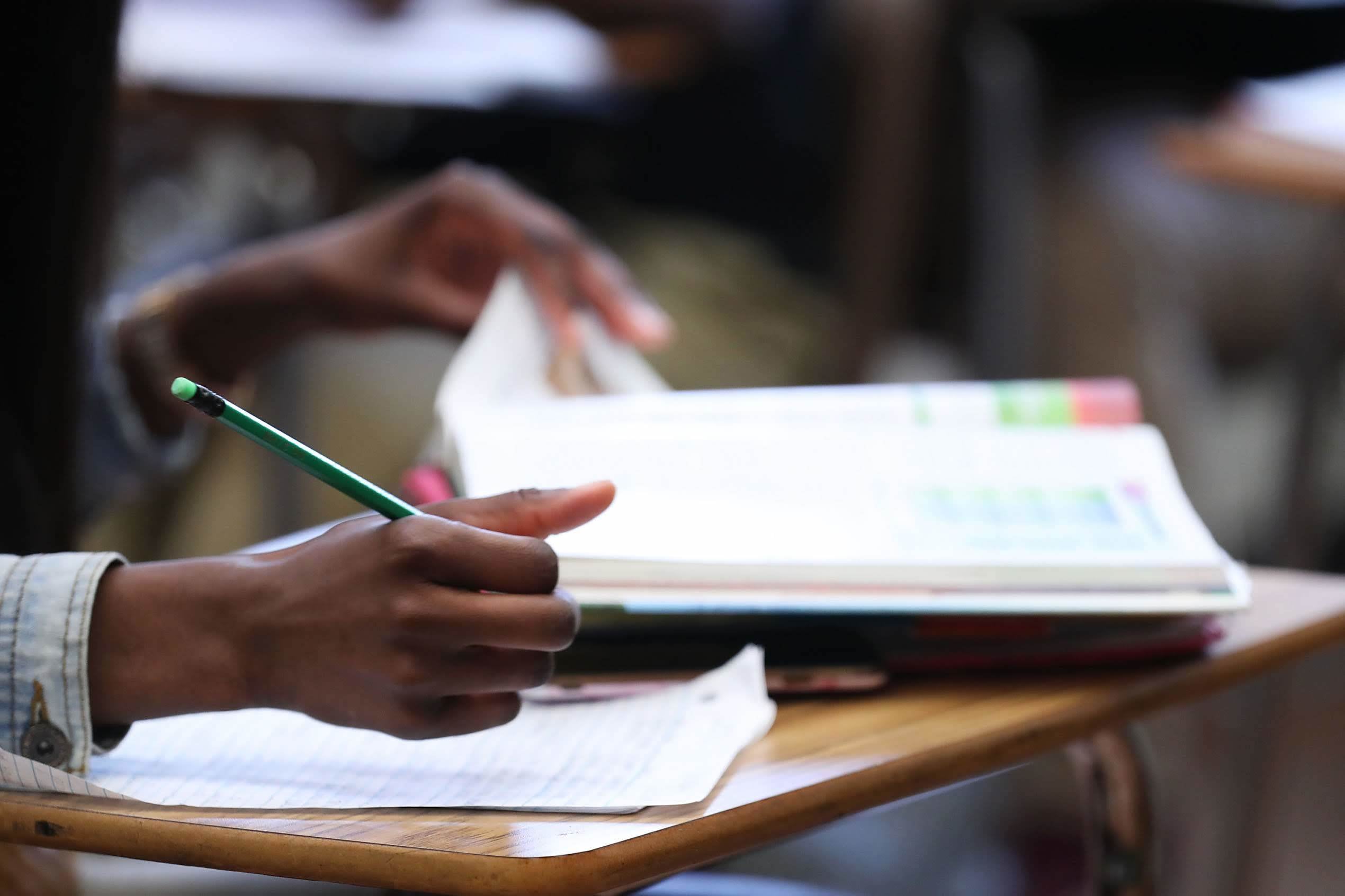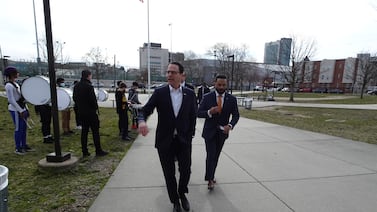Michigan does not have the ability to find thousands of students who are likely “not being educated” during the pandemic, much less a unified plan to do so.
As COVID-19 deaths rise in Michigan and more schools move to online instruction, districts have shouldered the responsibility for finding missing students, making phone calls, and in some cases knocking on doors.
But many of those students remain unaccounted for three months into the school year, and state leaders have done little more than encourage local superintendents to find them. Michigan’s incomplete data system — it does not include home-schooling families — makes the problem worse.
“Schools can’t do it alone,” John Severson, superintendent of Muskegon Area ISD, a county-level education support agency in western Michigan, said. There are “a lot of lost voices that we are not hearing from right now. And if we were to get them back, think about how far behind they are. We’ve got to find them.”
Superintendents are already bracing for the staggering challenge of helping students get back on track academically after the pandemic. That challenge will be more difficult to overcome if Michigan’s missing students aren’t found. Even with a vaccine on the way, public health experts say this winter will be among the grimmest periods of the pandemic. It will likely be months, at best, before schools across the state resume in-person instruction.
Many students “are not attending online classes and they’re not attending in-person classes — they’re just kind of lost,” said Jennifer Lewis, an associate professor of math education at Wayne State University in Detroit. That means students are missing out on concepts that they’ll need to understand next year’s work. Not to mention they’re missing out on the emotional and social support that they receive at school.
Educators are concerned about the well-being — academic, emotional, and physical — of students who simply aren’t attending school. Reports of child abuse have declined sharply during the pandemic, in part because teachers are among the people most likely to notice the signs of abuse.
Adding to the urgency of the situation, these students were already at greater risk of falling behind, she added.
“The kids who will suffer the most will be the kids who were already suffering,” she said. “The achievement gaps will only grow. We’ve already struggled with, ‘How do we help kids catch up?’ Now it’s going to be a stronger concern.”
Michigan’s enrollment fell by 53,200 students this fall, according to unaudited data obtained by Chalkbeat. That’s nearly double the enrollment decline in 2009-2010, the last year of the Great Recession.
A significant part of the decline — roughly 20% — was in kindergarten, suggesting that many parents decided against attempting to help their 5-year-olds learn virtually.
Some parents chose to home-school their children this fall. Others moved their students to private school. Still others may have moved their families to another district or out of the state due to COVID-related job loss or housing instability.
As schools attempt to make contact with students, they are already at the breaking point, said Bob McCann, executive director of the K-12 Alliance for Education, an association of Michigan school districts.
“It requires some level of coordination at a higher level to identify students who moved elsewhere versus students who we don’t know where they are right now,” he said. “It’s not as simple as a school having a list of who’s not here this year.”
As schools prepared to count students in October, State Superintendent Michael Rice sent memos to districts and spoke with superintendents across the state, urging them to find missing students.
But he stopped short of directing the Michigan education department, which he oversees, to use individual student data to ensure that districts were identifying missing students. Every student in Michigan is assigned a unique ID number that state officials can use to track them from school to school, including private and charter schools.
In an interview last month, Rice said that his role was to create a “drumbeat” of encouragement for districts to find missing students. But he said that doing so was ultimately up to them.
The Michigan Department of Education did not return requests for comment.
Enrollments have declined across the country, and many states are grappling with how to find missing students. In Colorado, the state expanded its AmeriCorps program to help districts find missing students. Still, the state faced pushback over concerns that missing students would be reported to legal authorities for truancy.
Michelle Fecteau, a Democrat and a member of the state board of education, said Friday that Michigan didn’t have enough staff to mount a statewide student-finding effort, and that some at the education department were concerned that it would be an “intrusion into the jurisdiction of local school districts.”
In any case, Michigan doesn’t even have the ability to track down all of the missing students, she said, because the state is not allowed to track home-schooling families.
“The state does keep track of who is in private schools, who is in charter schools, who is in traditional schools, but they don’t have any mechanism for tracking home-schoolers,” she said.
Some education leaders, Rice included, have called for the state to revisit a long-running debate about whether home-schooling families should be required to inform school districts when they pull their students out.
“They should have to say, ‘My kid went to a school last year here, in this district or at this private school, and now I’m home-schooling,’ ” said David Hecker, president of the American Federation of Teachers. “That’s your right to do, but you should have to tell the school district so the school district isn’t spinning its wheels trying to find your student.”
Tom McMillin, a Republican member of the state board of education, sharply rejected the idea, echoing the arguments of Michigan home-schoolers who aim to sever as many ties to the state as possible.
“They better not start knocking on doors,” he said. “That’s none of the state’s damn business. It’s the parents’ job” to home-school their children.
A registry of home schoolers would need to be approved by the Republican-controlled state legislature, which has typically shied away from regulating home schools.
Without a registry, though, Fecteau said it would be much more difficult to identify the students who need the most help.
“I’m concerned about kids who may be on the fringes, who may need not only education but food and shelter and day-to-day care, and who are not getting it,” she said. “Sometimes I just feel like nobody cares about these kids. They don’t have a lobby group, they don’t have money to have political influence.”







